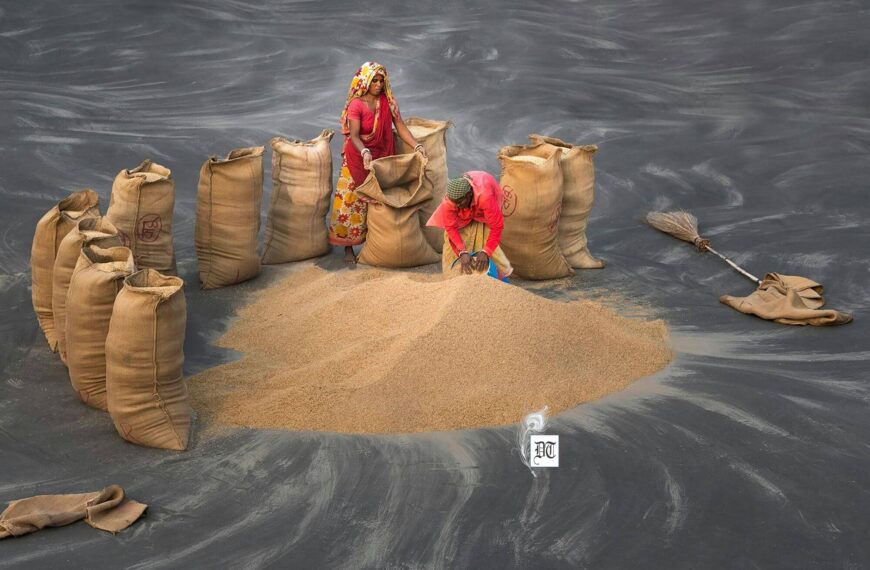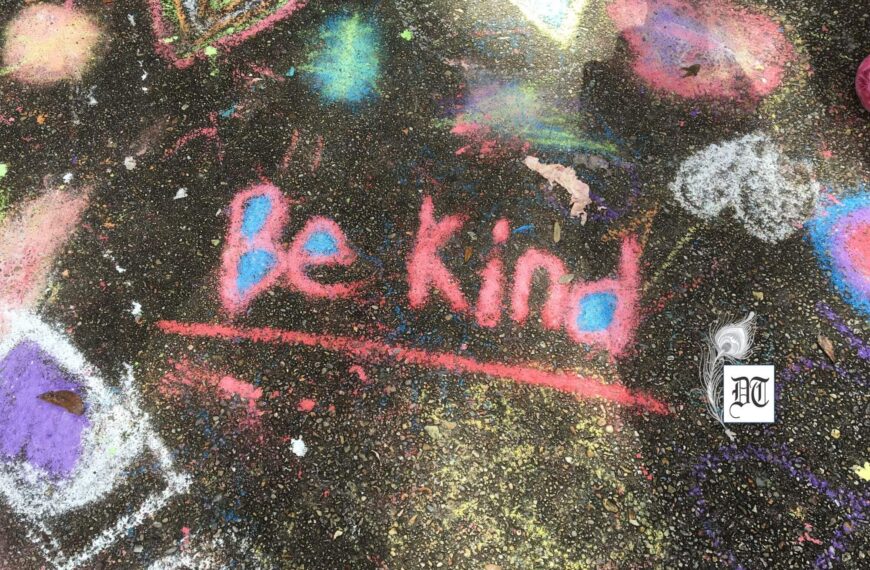Arindam delves into a personal experience, growing up as a boy in a refugee family. The grim reality of the refugee problem stares us in the face. According to the UNHCR, there are 59.5 million forcibly displaced people around the world. Nearly 20 million of these people are refugees and 10 million are stateless. The crisis is deep. He introduces the special feature in Different Truths on World Refugee Day (WRD), on its eve, in this curtain raiser.
Planning an in-depth coverage for the World Refugee Day (WRD) for Different Truths (DT), that is celebrated every year on June 20, struck a chord deep within me.
This was one of the causes that told my story of my family as well.
I was a refugee before I was born.
I grew up on the stories of dark despondencies and hopelessness that I heard from Bapi, my father, Jetha, his elder brother and Ma (Jethima, aunt). With their wealth, social status and dignity, they, as refugees, lost their identities as well.
Belonging to affluent big farmers, they had every material comfort at that time. Religious persecution and riots changed it all. I was amazed that my father and his brother were never bitter against those who caused them to leave their home and hearth.
They instead taught us few important lessons of life. “A man who loses everything has nothing to lose. After that he wins,” my Jetha told me once, I half understood what he said then.
My father cautioned me, “Education and good values are the only things that are yours. You may lose all your wealth, the entire family too. But this is one wealth no robber can rob.”
I learnt not to run after material wealth.
The men in our family were atheists. But, they believed in humanity and democratic values.
They taught me not to lose “the essential values of life and the belief in one’s self.” My Jetha once said, “The world you back everything more than once, except your parents, elders and children.” This stayed with me.
Jetha once reasoned that misfortunes are not without reason. It contains lasting lessons of life. A refugee’s son, the prepared and taught me what to value!
Angelina Jolie Pitt: Refugee System Breaking Down
The Hollywood actress Angelina Jolie Pitt deserves a separate article for her commitment to the cause of refugees, worldwide. We present select videos of her, here.
She is the UN refugee agency’s special envoy, has warned that the international humanitarian system for refugees is breaking down.
She was speaking as part of the BBC’s World on the Move day of coverage of global migration issues. She warned against a “fear of migration” and a “race to the bottom” as countries competed to be the toughest to protect themselves.
In Channel 4 News, Angelina discusses war, rape, and her UN role. She tells us how rape is used as a weapon in war and the need for punishing the men who get away with it.
On WRD 2015, this is what she spoke in Turkey:
Her most heart-wrenching speech was Angeline’s address on WRD 2009. She rued how she saw strength, bravery and resilience in children and war ravaged refugees.
Fact File: WRD 2016
WRD celebrates the strength of these hapless people. In the parched land of pain and agony, great values bloom. The Day also commemorates the obstacles and challenges that refugees, world over, face. It is for sensitizing and spreading awareness among people.
It’s fearsome that as many as 42,500 people, approximately, flee from their homes, per day. They seek protection within the borders of their own country or other countries. According to the UNCHR, in the last year alone, there have been 13.9 million people newly displaced.
Since 2001, the United Nations and more than 100 countries have observed World Refugee Day annually on June 20.
According to the UNHCR, there are 59.5 million forcibly displaced people around the world. Nearly 20 million of these people are refugees and 10 million are stateless.
Furthermore, of the 20 million refugees worldwide, 51% are under the age of 18. This is the highest number of child refugees since World War II.
The civil war in Syria has led to one of the worst humanitarian crises of our lifetime. More than 10 million Syrians are currently displaced. This amounts to 45% of the Syrian population.
Developing countries host 86% of the world’s refugees. This number has jumped by 16% in the last decade. Refugees only account for a tiny percentage of overall immigration.
The world’s largest refugee camp is located in Dadaab, Kenya, which is home to more than 329,000 people. In just six months, the Dadaab refugee camp is set to close due to potential security risks.
This year, the United Nations High Commissioner for Refugees (UNHCR) has started the #WithRefugees petition to send a message of action, solidarity, and responsibility on behalf of refugees to governments worldwide. This is WRD 2016 theme.
Different Truths Special Feature on WRD
We are thankful to the young research scholar in Norway, Amit Singh, Lenin Raghuvanshi of PVCHR, Lily Swarn and Madhumita Ghosh for their scholarly, erudite and soulful articles.
This is the fifth (5th) tie-up between The Significant League (TSL) and Different Truths (DT) on a socially responsive cause. It would not have been possible without the continued support of Ampat V. Koshy, assisted by two able co-editors, Gauri Dixit and Deepti Singh.
The lead article of the special feature, Sovereignty of the State is the core of Refugee Problem: An Academic Debate, by Amit Singh, takes a hard look at the notion of the sovereignty of the state vis-à-vis the human rights of refugees.
In the second article, Open Letter to the States of Europe for Providing Testimonial Therapy to Refugees: PVCHR, Lenin Raghuvanshi profiles the 2014-15 Roland Berger Human Dignity Award winners. These are some positive stories about exemplary persons, who worked against all odds.
Amit Singh reasons that at international human rights forums, India asserts to have a permanent seat in the UN Security Council, but disregard of refugees’ rights at home weakens her claim. As a result, there is unequal treatment to refugee groups in the in-depth research article, India in need of National Policy on Refugees.
The partition of India is a deep gash in our collective consciousness. There were hunger, rape, loss of human dignity and property. There were mass murders. Lily Swarn recounts the experiences of her ancestors, her grandfather, father, aunts and mother-in- law in the heart-wrenching article, The Partition.
In the article, Seeking Refuge, Madhumita Ghosh tells us that an entire repertoire of Bengali literature, with its distinct echoes in cinema, documents the agony of partition. She revisits the land of her ancestors and shares the collective memory of being uprooted. Talking with her old mother about Dacca, she recreates the horror of that time.
We close the special feature with the voice of the bards. An Anthology of World Refugee Day Poems, a TSL-DT synergy, presents 69 poems, one from each poet, to showcase the humane aspects of the poets from world over. They come together to express their solidarity on a cause that threatens global peace.
We hope and trust that DT succeeds in bringing about a positive change, no matter how small. Every act of kindness counts.
A long journey often begins with the first step.
©Arindam Roy
Pic and video from Net.


 By
By


 By
By